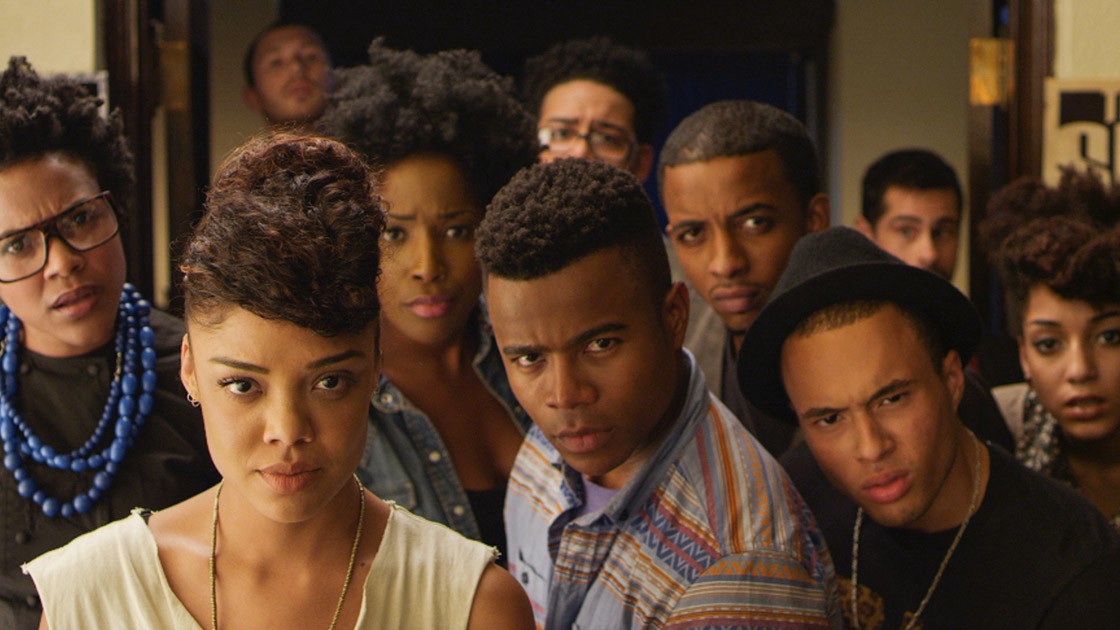When the film version of Dear White People debuted at Sundance in 2014, many were excited about a story that gave voice to the unique challenges of Black students in predominately white schools. Coming after a generation that brought us School Daze and A Different World, HBCU stories of today seem to ring out as the only authentic spaces for students of color to develop a voice of consciousness, while also defining who they are as young adults.

Lionsgate/Roadside Attractions
There was a need for Spelman, Morehouse and Hampton to appear in the cinematic landscape (that is so true), but even those stories, as powerful as they can be, shouldn’t be seen as the only ones that hold value. This led to folks being excited about an indie film filled with truth-telling about racism on predominately white campuses and how students deal with the culture barrier.
Context can be great; box office numbers have to be better. Unfortunately, we did not show up when it was first released in theaters, and to-date Dear White People has earned a dismal $4m in theaters.
Alas, Netflix continues to create the new wave by offering storytellers a platform to get it right through their medium. DWP enjoyed success on a much larger scale as a series, leaving students, would-be students, teachers, parents and just folk that like good TV all glued in to their TV screens. The second season debuted this past weekend with similar acclaim but a very different (yet much-needed) perspective.
While the first season introduced us episode-by-episode to each character and their perspective on the racialization at their fictitious Winston University, this season affords those characters the opportunity to deal with all of the repercussions that result from the activism. These students go from mixing social politics with the everyday college culture of sex, partying and academics, to dealing with the “Now what?” that forces all young people between the ages of 17 to 22 when they exercise their “grown-ish” behavior in the safety net of the university.
This season has the most hilarious special guests — Lena Waithe popping out through the most unlikely character is ridiculously funny — proving the popularity of the show is reaching new heights. There’s a nod to the movie in here, too, with the original Lionel (Tyler Williams) coming back. His return isn’t a “Ghost of Christmas Past” cameo, but more of a nod to who present-Lionel could be in future episodes. Tessa Thompson adds to that sentiment, with a whole new reinvention that solidifies this full circle moment for those that’ve been checking for them since the beginning (Editor’s Note: Reviews are unfair because you can’t really talk about the show without giving out a spoiler or two.)
WHAT TO EXPECT FROM YOUR FAVES?
The shy Lionel becomes more comfortable with his sexuality, which in turn sees him emerging as a leader that flexes in ways that you would’ve never expected in the first season. Very dope character development here! Reggie, who last season was the victim of excessive campus policing, suffers from Post-Traumatic Stress Disorder, giving credit to the struggles Black men continuously have to fight through while putting on a strong face for the world. Troy, the spoiled legacy kid, falls from grace and compensates it like so many upper-middle class men. While one might argue that his character does not fully develop, there’s no question that he’s transformed by his actions from season one to the current season.
Coco is also on a different path this season. She goes from being power hungry to power-satisfied; ice princess to understandable and relatable. There’s even an unexpected burst of celebration of her womanhood that weaves a “sister-girl” compassion through every female cast member. It’s a surprising turn of events, too, because Logan Browning’s character Sam is the focal point.
While we never forget that Sam is the focal point, the writers use great care to honor the other women as well. Issues of her multi-ethnicity and biraciality are pushed to the front. She speaks to a number of people watching as she struggles with her Black mother and White father’s basic existence. Tragic mulatto? Nah — that would be easy. The writers took enough care to create a fully-present persona, who again struggles with what “Blackness” feels like and ultimately looks like. It’s done with brilliance by juxtaposing Joelle with Sam from the very first episode, literally pairing them as co-hosts on the “Dear White People” radio show.
The politics on this show could have the potential to scream at you. Thankfully, it doesn’t for the most part. Granted, the backdrop of the show is political in nature, but it’s not louder than the context of self-discovery — authentic self-discovery.
Now we’re just waiting for the next season. Looking forward!